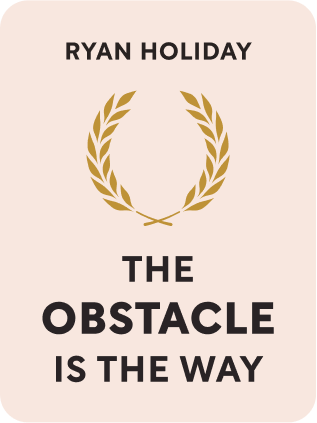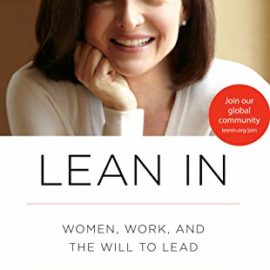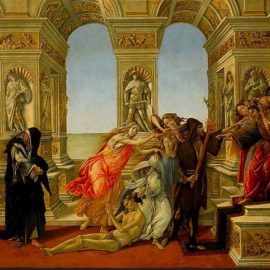

This article is an excerpt from the Shortform book guide to "The Obstacle Is The Way" by Ryan Holiday. Shortform has the world's best summaries and analyses of books you should be reading.
Like this article? Sign up for a free trial here .
Are you looking for The Obstacle Is the Way quotes by Ryan Holiday? How did the Stoics believe one should deal with obstacles? What are some of the most telling The Obstacle Is the Way passages that reflect their philosophy?
In The Obstacle Is the Way, Ryan Holiday explains how to apply the principles of Stoicism to overcoming challenges in everyday life. The Obstacle is the Way quotes can highlight some of the key Stoic lessons discussed in the book.
Keep reading for The Obstacle Is the Way quotes by Ryan Holiday.
The Obstacle Is the Way: Quotes and Passages
“The obstacle in the path becomes the path. Never forget, within every obstacle is an opportunity to improve our condition.”
The first of The Obstacle is the Way quotes reflects the central premise of the book and the Stoic philosophy in general. It is the idea that within obstacles lie great opportunities. When we encounter obstacles, our options are to give up on our goal or to turn the obstacle upside down and use it to advance our purpose. The latter option is the one a Stoic would take.
According to Holiday, all successful people throughout history managed in the Stoic tradition to thrive, not only in spite of but also because of the obstacles they encountered. Marcus Aurelius, who ruled the Roman empire for 19 years, embodied and articulated this approach to overcoming obstacles, writing:
The impediment to action advances action
What stands in the way becomes the way
“No one said anything about not feeling it. No one said you can’t even cry. Forget “manliness.” If you need to take a moment, by all means, go ahead. Real strength lies in the control or, as Nassim Taleb put it, the domestication of one’s emotions, not in pretending they don’t exist.”
The second quote from The Obstacle Is the Way talks about the Stoic approach to handling difficult emotions. Contrary to the common misconception, Stoicism isn’t about eliminating negative emotions. Rather, it is about taking a pragmatic approach to emotions and learning to redirect focus when unhelpful emotions take over. By doing so, you can focus your energy on solving problems rather than reacting to them.
“Through our perception of events, we are complicit in the creation—as well as the destruction—of every one of our obstacles. There is no good or bad without us, there is only perception. There is the event itself and the story we tell ourselves about what it means. That’s a thought that changes everything, doesn’t it?”
Perception is how we see the world around us. Typically, we assign meaning to events—for instance, whether they’re good or bad. In contrast, Stoics view events neutrally (as they are) so they can better understand them.
Our perceptions can hinder or help our actions. If we’re emotional and self-centered, we will act in self-sabotaging ways. However, when we learn to view things dispassionately and curiously, we can embody the discipline of “right action,” which has three attributes: deliberateness, boldness, and persistence. Deliberate step-by-step action breaks down obstacles.
“Take your situation and pretend it is not happening to you. Pretend it is not important, that it doesn’t matter. How much easier would it be for you to know what to do? How much more quickly and dispassionately could you size up the scenario and its options? You could write it off, greet it calmly.”
It’s always easier to solve someone else’s problems than your own because you can see their problems more objectively (without the self-pity and excuses that get in your own way). This is why Holiday encourages the reader to pretend that the difficult situation is happening not to him/her, but to someone they know, and think of what they’d advise them to do.
Remember that your perception, or how you view things, is a matter of choice. You have the ability to introduce a new perspective into any situation—that is, to view it differently. Your perspective and what you tell yourself about an obstacle affect how easy or difficult it is to overcome.
“For all species other than us humans, things just are what they are. Our problem is that we’re always trying to figure out what things mean- Why things are the way they are. As though the why matters. Emerson put it best: “We cannot spend the day in explanation.” Don’t waste time on false constructs.
When something happens or we face a challenge, instead of seeing it as it is, we obsess over why things are the way they are. This tendency is unique to the human species. As Emerson noted, we “waste time on false constructs”—spending our days conjuring up explanations for why things are the way they are. This makes obstacles seem bigger and more difficult to deal with. Instead of analyzing what problems mean, we should simply address them in the present.
“The great psychologist Viktor Frankl, survivor of three concentration camps, found presumptuousness in the age-old question: “What is the meaning of life?” As though it is someone else’s responsibility to tell you. Instead, he said, the world is asking you that question. And it’s your job to answer with your actions.”
The last (but not least) of our selection of The Obstacle Is the Way quotes refers to Victor Frankl’s philosophy about the role of will in finding meaning. Viktor Frankl was a prisoner under the Nazis in various German concentration camps. From this experience, he famously declared that you can take away literally everything from a person except their ability to choose their attitude. Frankl also said a clear life purpose enables a person to overcome virtually any challenge and endure virtually any conditions.

———End of Preview———
Like what you just read? Read the rest of the world's best book summary and analysis of Ryan Holiday's "The Obstacle Is The Way" at Shortform .
Here's what you'll find in our full The Obstacle Is The Way summary :
- Why you should think of any obstacles as opportunities
- How Stoicism can show you the way to overcome challenges
- How Theodore Roosevelt's struggle with asthma prepared him for future struggles






